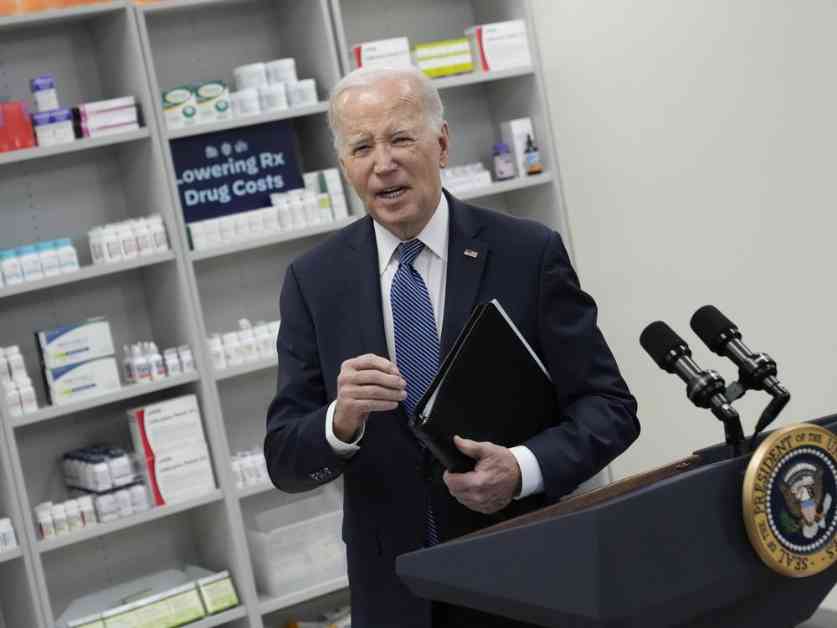White House Announces Medicare Drug Price Reduction Deals: Saving $50 Billion Annually
The Biden administration is celebrating a major milestone in healthcare reform as federal officials have successfully negotiated deals with drug companies to lower the prices of 10 of Medicare’s most popular and costly medications. This significant achievement is expected to result in savings of $50 billion annually, benefiting both taxpayers and older Americans who rely on these medications.
Details of the New Deals
The White House announced on Wednesday night that the newly negotiated prices for these medications will result in savings of $6 billion for U.S. taxpayers and approximately $1.5 billion for older Americans. While these projections are based on estimates, the administration has not yet provided specific details on the new prices that older Americans will pay for these medications.
The Impact of the Deals
The medications included in these price reduction deals are commonly used to manage conditions such as diabetes, blood cancers, heart failure, and blood clots. Among the drugs affected by the negotiations are popular blood thinners like Xarelto and Eliquis, as well as diabetes medications like Jardiance and Januvia. These medications are vital for the health and well-being of millions of older Americans who rely on them for their daily treatment regimens.
Historic Deal for Medicare
The Medicare program, which provides health care coverage for over 67 million older and disabled Americans, has historically been unable to negotiate drug prices with pharmaceutical companies. This landmark deal marks a significant departure from this longstanding practice, allowing Medicare to secure lower prices for essential medications that are crucial for the health and well-being of its beneficiaries.
The Challenges of Drug Pricing
For years, pharmaceutical companies have had the freedom to set prices for their medications without government intervention, leading to skyrocketing costs for consumers and taxpayers alike. The inability of the government to negotiate drug prices has been a major contributing factor to the rising healthcare costs in the United States.
The Role of Vice President Harris
Vice President Kamala Harris played a crucial role in passing the legislation that enabled these price negotiations to take place. As the tie-breaking vote in the Senate, Harris’s support was instrumental in ensuring that Medicare could finally negotiate lower prices for essential medications. This achievement will undoubtedly be a centerpiece of her presidential campaign, as she seeks to address the pressing issue of healthcare affordability for all Americans.
Future Implications and Savings
While the details of the new drug prices are yet to be revealed, the Congressional Budget Office has estimated that the negotiations could save the federal government $25 billion by 2031. This significant cost savings will have a positive impact on both taxpayers and Medicare beneficiaries, ensuring that essential medications remain affordable and accessible for those who need them the most.
Looking Ahead
As the Centers for Medicare and Medicaid Services prepare to release the final drug prices later this week, the focus remains on ensuring that these savings benefit those who rely on these medications for their health and well-being. The new prices are set to go into effect in 2026, providing much-needed relief for older Americans who have been burdened by the high cost of prescription medications.
In Conclusion
The White House’s announcement of the Medicare drug price reduction deals represents a significant step forward in addressing the issue of rising healthcare costs in the United States. By negotiating lower prices for essential medications, the Biden administration has taken a proactive approach to ensuring that healthcare remains affordable and accessible for all Americans. The impact of these deals will be felt by millions of older Americans who rely on Medicare for their healthcare needs, providing much-needed relief from the burden of high prescription drug costs.






















